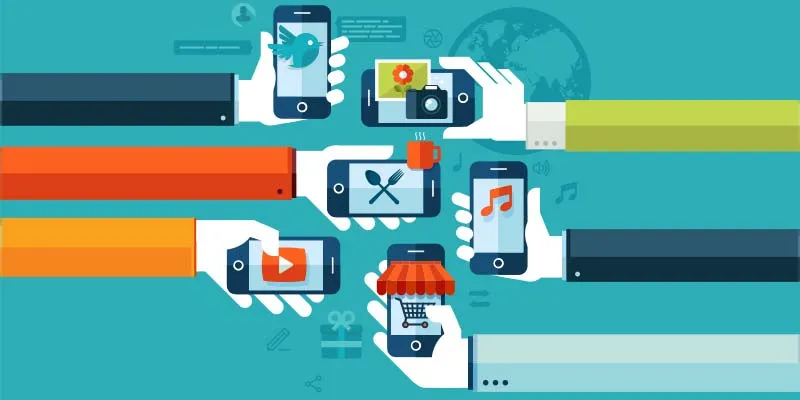Marketing no longer belongs to a department, everyone is a marketer
Marketing is too important to be left to the marketing department
David Packard, Co-founder, Hewlett-Packard

Marketing is a function that historically has relied on the understanding of human behaviour and has been based on a lot of intangible factors that influence consumer brand preferences like brand messaging, brand logos and so on. Today, marketing efforts have received the added benefit of tangible, easily accessible data.. So what’s changed?
Fundamentally, not much. However, technology has enabled marketers to break down formerly intangible factors and measure, on a highly granular level, the various parts of what ultimately influences a consumer.
fast forward
In today’s era of social media and hyper-connectivity on so many devices, it’s easy to forget that each touch point that a person has with your brand adds to their opinion. Remember the days when the ‘marketing department’ would send over literature with a set of guidelines and then run these mammoth campaigns spanning print, TV, radio and hoardings. That was a carefully planned project with a lot of considerations with the aim of sending out a certain message. Things were different back then; the communication was one-sided, from the brand to the customer, feedback wasn’t instant (think focus groups, mail surveys, feedback forms) and a lot of data points were assumed.
Fast forward to today, and the modern marketer is tracking everything you do on their website, they are expected to be on every social platform, apart from enabling sales and support functions on all touch points. Today, every interaction that you have with a brand can be and is measured. It is interpreted and analysed, and data from otherwise disparate systems are brought together to unlock more value and meaning from the brand’s point of view.
brand engagement
Every time a person engages with your brand, online or offline, it is an opportunity to leave an impression. That spans across the entire gamut of functions that a company is involved in. Let’s take a mobile-app company: here are a few touch points for customers that influence their opinion of your brand, irrespective of the size of your company:
- Friendliness of the logo
- Messaging used in communication
- Sales process, design of collateral and sales material
- Onboarding process
- Customer support – response, friendliness and satisfaction
- User-friendliness of the app / software
- Social media presence – Communication style
- Presence on forums, blogs, industry portals
So who owns this and how do you manage so many functions across so many people?
Marketing still owns it, but everyone is now a marketer. Every employee is a brand ambassador, every tweet and post represents your brand. Marketing is more scientific than it used to be, and it’s equally more democratic. Every customer has an opinion and every opinion is valid. That has always held true; however, the difference now is that the customer can tell the world of their opinion before they tell you. Customers can influence other customers, the opinion of one customer can shape the opinions of others, both prospective and current, and so the only way to combat this is to involve and empower the entire company as marketers to listen and respond.
brand messaging
I’m going to illustrate my opinion using a few brands. I’d like you to think of the first impression that comes to mind as you read the following brand names:
- Apple
- Amazon
- Housing
- AskMe
Apart from the PR chatter that is associated with these brands, if you go a little deeper, you’ll probably agree with me that the general perception of Apple revolves around great products, clean and simple design, and an aura of exclusivity. On the other hand, the perception of Housing is very polarised since the brand messaging was not clear in the good times and a lot of negativity surrounded the brand, which diluted its position. This has resulted in customers questioning why they should opt for Housing’s services as compared to its competitors.
Brands are more human today than they ever have been. The phrases we keep hearing about ‘the voice of the brand’ or ‘humanising the brand’ ultimately lead us back to asking the same question: Is every person in your company a marketer?







